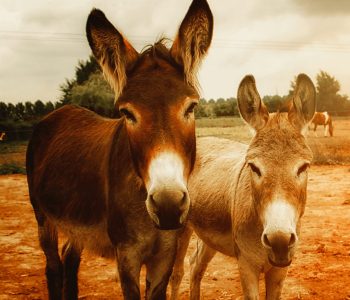Donkey milk consumption could represent a golden opportunity for the Spanish livestock sector. Lactose intolerance is one of the most common food allergies around the world. It is probably the second most important food allergy after those associated with egg protein. According to data from a study carried out by the Food Intolerance Network, 60% of the global population has some degree of lactose intolerance. Resulting in reduced consumption of products containing lactose.
This has forced the dairy industry to reinvent itself and produce lactose-free milk as well as other dairy products. The estimated level of lactose intolerance in Spain ranges between 30-60%, making it one of the countries with the highest percentage of its population affected by this type of allergy in Europe.
Donkey milk, an opportunity for farmers
The proposal has stemmed from Argentina, and more specifically from the National University of Río Cuarto, in the province of Cordoba. This initiative, led by veterinarian and professor Luis Losinno, aims to provide an alternative for lactose intolerant individuals, allowing them to consume dairy products. It also offers an excellent opportunity for farmers.
In turn, Losinno’s idea comes from China. The famous professor traveled around the Asian country for some time and got to experience their important donkey milk industry first hand. Making China and Italy the main producers of these types of products.
Why donkey milk?
According to studies, donkey milk has lower levels of casein (protein that strengthens defenses, bones and helps absorb calcium) than those found in ruminant milk. This protein is usually one of the main causes of allergies, especially in babies. It also contains a lower fat content. However, its most important feature, is that it is the type of milk that most resembles to human milk in terms of protein and lactose content.
Benefits of Donkey Milk
- It is rich in vitamins A, B1, B2, B6, C, D and E
- Has good levels of omega 3
- Provides a good percentage of calcium to the body
- It has antioxidant properties that help delay aging
- Helps strengthen the immune system
- It has antibacterial and anti-inflammatory properties. As it contains lactoferrin and lysozymes, just like human milk does.
Donkey milk mass production is already a reality in Argentina
Losinno’s initiative allowed multiple studies to be developed around donkey milk. His eagerness to bring this type of milk to the population led to the creation of Equslac, a project dedicated to the distribution of donkey milk throughout the country.
An alternative for farmers in Spain
Data drawn from Argentina represents an excellent opportunity for Spanish farmers. Considering that the Spanish livestock sector has been forced to slaughter more than 6,000 cattle in two years (only in the Basque Country). The possibility of breeding and milking donkeys through extensive livestock practices could be very significant for farmers. Especially under the current scenario of rising prices of raw materials. Therefore, this type of sustainable livestock production could would be carried out under reasonable costs. Offering benefits associated with the marketing strategy of a product that is more suitable for human consumption.
Source:This article first appeared as a spanish content in nutriNews España
